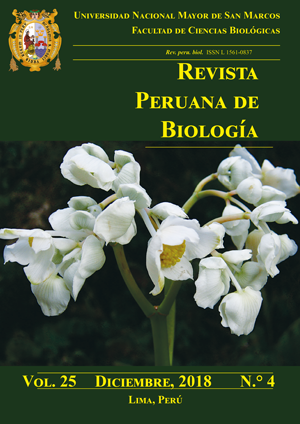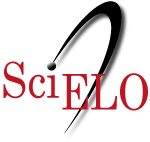Petroleum hydrocarbon degradation by isolated mangrove bacteria
DOI:
https://doi.org/10.15381/rpb.v25i4.15537Keywords:
microorganisms, metabolism, Hydrocarbons, pollution, bioremediation.Abstract
The petroleum hydrocarbon contamination represents a worldwide problem, since its accumulation promotes a serious environmental impact. Thereby, the use of microorganisms, such as those from mangrove micro biota, as degrading agents of various carbon sources is poorly exploited in environmental remediation processes. Thus, this in vitro study evaluated the degrading potential of isolated bacteria from mangrove sediments in the degradation of petroleum hydrocarbons. Analysis of the genetic diversity using the 16S rRNA marker revealed closely related (99%) sequences with Proteobacterium, Pseudomonas and Exiguobacterium. Results showed the bacterial growth in the mineral saline medium (MSM) containing 1% petroleum or diesel, as carbon sources. This growth was determinated by optical density at 595 nm for 15 days, with sample withdrawal every 48 h. Bacterial growth indicated the hydrocarbon metabolization. However, bacteria were more efficient at degrading petroleum. Overall, experimental data displayed the potential application of these bacteria in bioremediation processes, due to their metabolic and adaptive capacities to grow in a rich hydrocarbon medium.Downloads
Downloads
Published
Issue
Section
License
Copyright (c) 2018 Mayara A. Lustosa, Jorge A. López, Karla C. Santos Freire, Francine F. Padilha, María Lucila Hernández-Macedo, Rebeca Y. Cabrera-Padilla

This work is licensed under a Creative Commons Attribution-NonCommercial-ShareAlike 4.0 International License.
AUTHORS RETAIN THEIR RIGHTS:
a. Authors retain their trade mark rights and patent, and also on any process or procedure described in the article.
b. Authors retain their right to share, copy, distribute, perform and publicly communicate their article (eg, to place their article in an institutional repository or publish it in a book), with an acknowledgment of its initial publication in the Revista Peruana de Biologia.
c. Authors retain theirs right to make a subsequent publication of their work, to use the article or any part thereof (eg a compilation of his papers, lecture notes, thesis, or a book), always indicating its initial publication in the Revista Peruana de Biologia (the originator of the work, journal, volume, number and date).


















